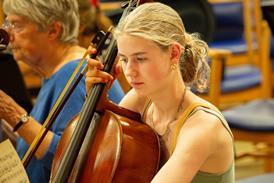Government restructures provision amid funding cuts
The UK government has launched its first ever National Plan for Music Education. The long-awaited strategy comes in response to Classic FM managing director Darren Henley's review of the sector, which found that children's music education provision, while excellent in places, was patchy. The government aims to address this with a new national funding formula that it says will deliver fair funding throughout the country on a per pupil basis, with weighting for areas of deprivation.
Local authority music services will be replaced by music education hubs, to be set up and overseen by the Arts Council for England. These hubs, which the government wants to be fully operational by September 2012, will bring together local authorities and local music groups, such as choirs and orchestras. But these partnerships will have to work with decreasing levels of funding. At the moment, £82.5m a year is spent on music education by the Department of Education. From next year, the funding, most of which will go to the hubs, will go down to £77m, and then £65m and £60m in the subsequent two years.
The national plan promises to give every child the chance to learn a musical instrument for at least a term. In addition, a new music teaching module will be developed for trainee primary school teachers, and the In Harmony programme, based on Venezuala's El Sistema music education system, will be expanded across the country.
The National Plan for Music Education can be downloaded
from here.
See Christian Lloyd's blog, What
next for music education?








































No comments yet